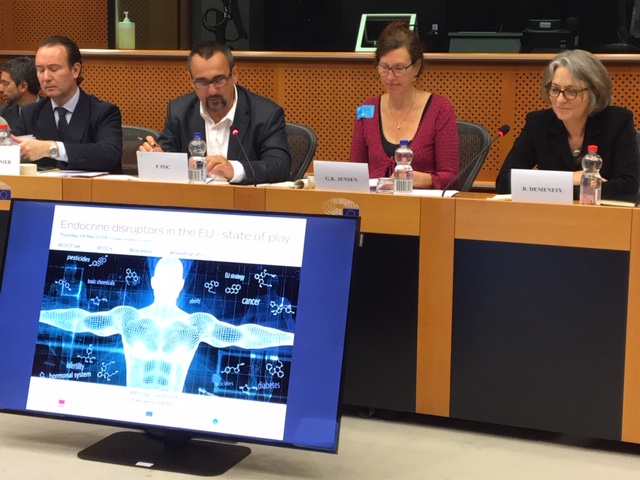On October 14, the European Commission issued a Communication describing the European Union’s “Chemicals Strategy for Sustainability Towards a Toxic-Free Environment,” as part of the EU Green Deal. The strategy is designed to be the foundation for the most significant update to Europe’s chemical regulations in more than a decade.
The Endocrine Society has advocated for prioritization of endocrine-disrupting chemicals (EDCs) in the strategy, and we are pleased to report that the strategy includes many key measures advocated by the Endocrine Society to protect the public and the environment from endocrine-disrupting chemicals (EDCs). These include:
• committing to a hazard-based approach to identify EDCs, including strict measures to prevent them from being used in consumer products;
• calling for stricter data requirements for EDCs across legislation and accelerating the development and adoption of better test methods in line with scientific knowledge;
• committing to introducing provisions for evaluating unintentional mixtures to assess how best to address combination effects in the future;
• prioritizing control measures for poly- and perfluoroalkyl substances (PFAS) and to address them with a group approach; and
• calling for introducing EDCs as substances of very high concern under REACH and in CLP legislation.

The strategy reflects our input and consistent pressure to policy makers in the EU, led by the Endocrine Society’s EU EDC Task Force, chaired by Professor Barbara Demeneix, which was instrumental in achieving these important results. Members of the Task Force participated in high-level meetings with the European Commissioner for Health and the Commissioner for the Environment, as well as meetings with Commission staff and members of the European Parliament. We also wrote directly to executive vice-president Frans Timmermans in collaboration with a group of international scientific societies to share our public-health focused positions.
The communication represents an important and positive first step towards concrete legislative actions; however, additional details remain to be determined and the expertise of Endocrine Society members will continue to be important as the Commission and other policy-making bodies in the EU work towards implementation of the strategy. Be on the lookout for additional opportunities to weigh in and ensure that your voice is heard as we continue to educate policy makers around the world about EDCs and how science-based regulatory controls can improve public health.

